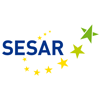EU Transport Ministers agree on 2024 extension of SESAR Joint Undertaking
- Like
- Digg
- Del
- Tumblr
- VKontakte
- Buffer
- Love This
- Odnoklassniki
- Meneame
- Blogger
- Amazon
- Yahoo Mail
- Gmail
- AOL
- Newsvine
- HackerNews
- Evernote
- MySpace
- Mail.ru
- Viadeo
- Line
- Comments
- Yummly
- SMS
- Viber
- Telegram
- Subscribe
- Skype
- Facebook Messenger
- Kakao
- LiveJournal
- Yammer
- Edgar
- Fintel
- Mix
- Instapaper
- Copy Link
Posted: 11 October 2013 | SESAR | No comments yet
The new mandate reflects the timeframe of the Union’s 2014-2020 financial framework…


The EU Council for Transport, Telecommunications and Energy (TTE) Council has adopted its position on a Regulation to extend until 31 December 2024 the mandate of the SESAR Joint Undertaking. The agreement was reached at a meeting of EU transport ministers on 10 October in Luxembourg, which was held under the auspices of the Lithuanian Presidency of the EU Council. Under the EU legislative procedure, the European Parliament must now be consulted in order to adopt the Council’s decision.
The current remit of the SESAR Joint Undertaking expires on 31 December 2016. The new mandate reflects the timeframe of the Union’s 2014-2020 financial framework and allows an additional four years to wind down activities. The Council position retains the ceiling of EUR 600 million proposed by the European Commission for the EU contribution to the SESAR Joint Undertaking, to be earmarked under the EU’s Horizon 2020 framework programme for research and innovation (COM(2013) 503).
A mid-term evaluation showed that, in terms of the scope of its activities and its governance structure, the SESAR Joint Undertaking is functioning satisfactorily; no fundamental changes will be made to these aspects of the 2007 Regulation.
The SESAR programme – the technological pillar of the Single European Sky (SES) initiative – aims to modernise air traffic management (ATM) in Europe, overcoming current fragmentation. The SESAR Joint Undertaking’s main task is the execution of the European ATM Master Plan, which will lead to the use of new generation ATM systems from 2020 onwards.
“The new air traffic management system will be implemented by new communication, control and computing technologies between the ground and aircraft. This will optimise the work of air traffic controllers and pilots. The new system is particularly significant for the management of growing air traffic. It should considerably improve flight safety and will help to increase Europe’s competitiveness in the global aviation market,” said Rimantas Sinkevičius, Minister of Transport and Communications of Lithuania and Chair of the 10 October meeting.













